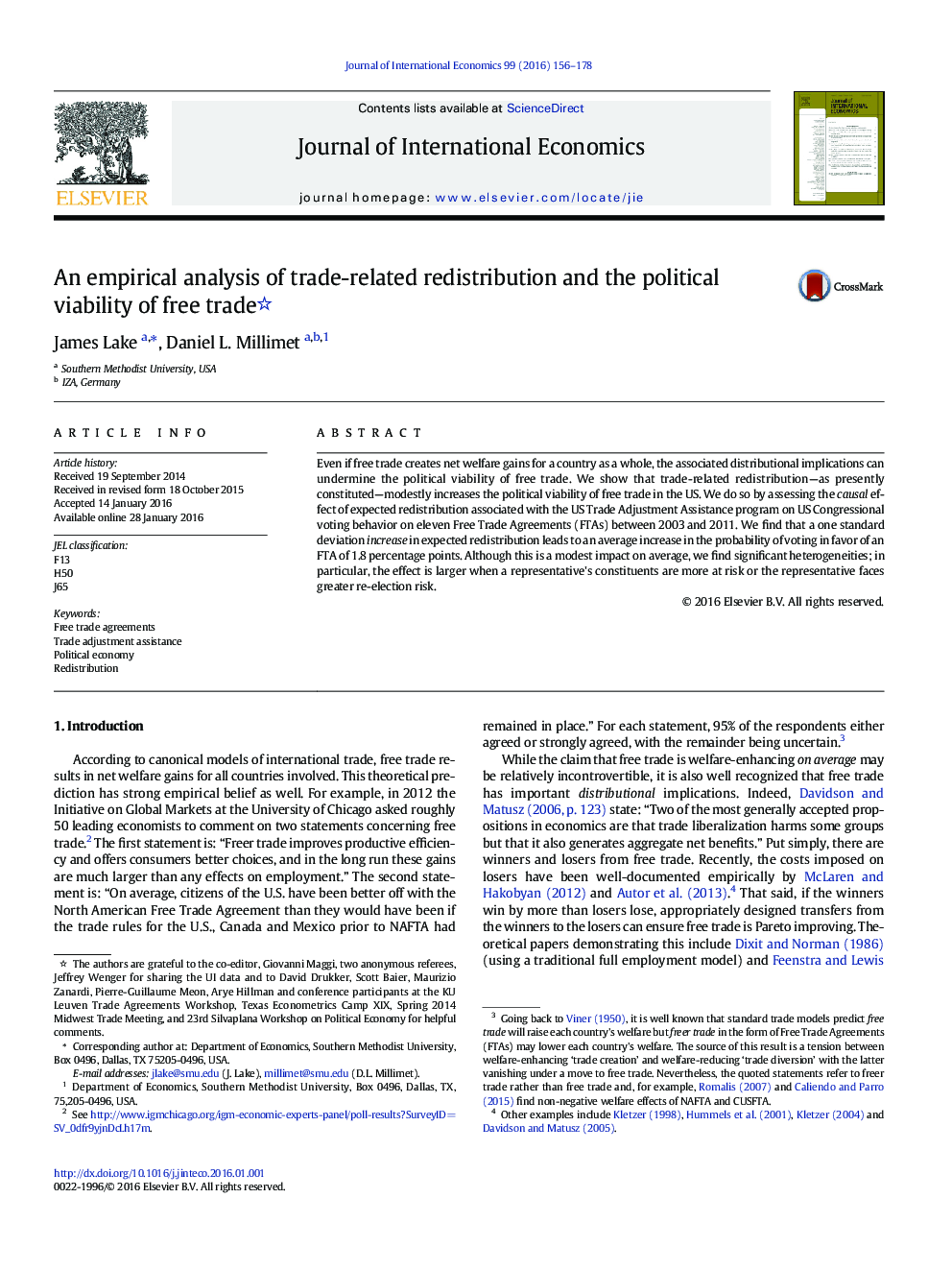| Article ID | Journal | Published Year | Pages | File Type |
|---|---|---|---|---|
| 7364122 | Journal of International Economics | 2016 | 23 Pages |
Abstract
Even if free trade creates net welfare gains for a country as a whole, the associated distributional implications can undermine the political viability of free trade. We show that trade-related redistribution-as presently constituted-modestly increases the political viability of free trade in the US. We do so by assessing the causal effect of expected redistribution associated with the US Trade Adjustment Assistance program on US Congressional voting behavior on eleven Free Trade Agreements (FTAs) between 2003 and 2011. We find that a one standard deviation increase in expected redistribution leads to an average increase in the probability of voting in favor of an FTA of 1.8 percentage points. Although this is a modest impact on average, we find significant heterogeneities; in particular, the effect is larger when a representative's constituents are more at risk or the representative faces greater re-election risk.
Related Topics
Social Sciences and Humanities
Economics, Econometrics and Finance
Economics and Econometrics
Authors
James Lake, Daniel L. Millimet,
